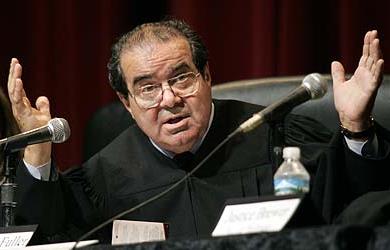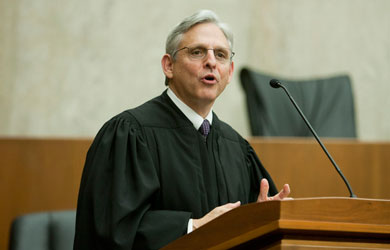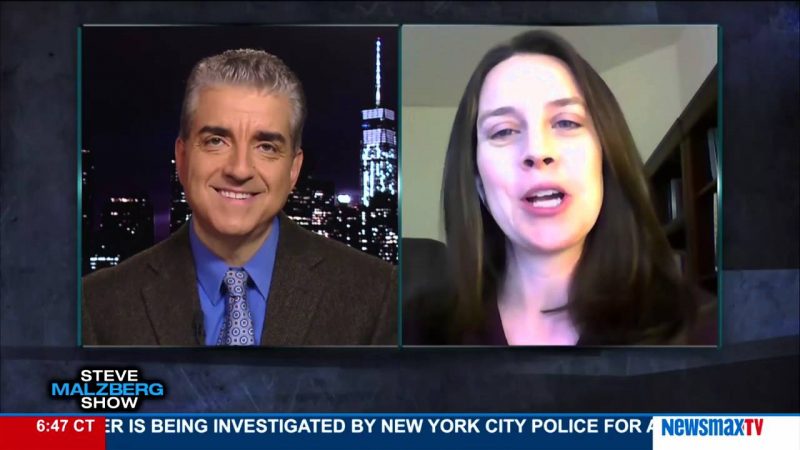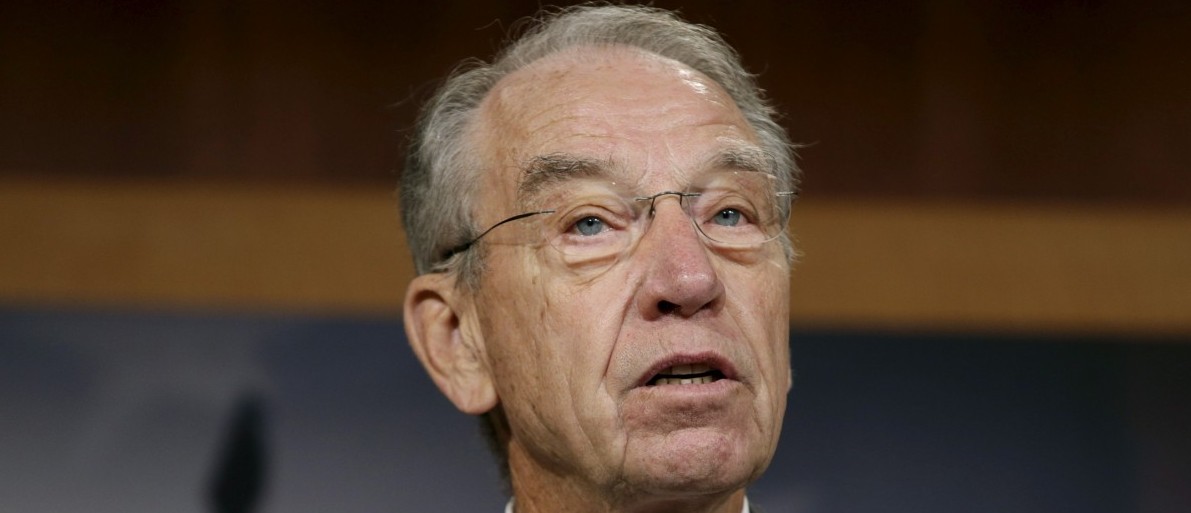At a Values Voter Summit panel this weekend, top conservative legal groups promised that if Hillary Clinton becomes president, they will pressure GOP senators to obstruct her judicial nominees to the greatest extent possible, including attempting to prevent her from replacing the late Justice Antonin Scalia on the Supreme Court.
Carrie Severino of the Judicial Crisis Network, Phillip Jauregui of the Judicial Action Group, and David Christensen and Mandi Ancalle of the Family Research Council discussed what they would urge the president and the Senate to do in the first 100 days of the next presidency. In the case of a Clinton presidency and a Republican-controlled Senate, they promised maximum obstruction of judicial nominees.
Severino, who once called Judge Merrick Garland “the best scenario we could hope for” in an Obama Supreme Court nominee and said that “of those the president could nominate, we could do a lot worse” than Garland, predictably changed her tune once Obama actually did nominate Garland to replace Scalia on the Supreme Court. At the Values Voter Summit, Severino insisted that senators would “effectively nullify their oath to uphold the Constitution” by voting to confirm Garland.
“Say you’re in a state where there’s no chance on who’s going to win on the president’s side, it’s so important to remember how significant these senatorial races are, because the senators also had an oath to the Constitution,” she said. “They have to uphold and defend the Constitution. That means, when it comes to a vote for a nominee, so even if it is someone who is absolutely not going to uphold the Constitution as it is written, like Merrick Garland even, even if he does come to a vote—and I suspect that if he remains the nominee into the next presidency, he probably would come up for hearings and a vote at some point—our senators simply cannot be voting for someone that would effectively nullify their oath to uphold the Constitution. So I think we have to remember to remind our senators of that.”
Severino dismissed the idea of the Republican Senate confirming Garland in a lame duck session if Clinton wins the election, saying that if Clinton becomes president and renominates Garland or picks someone “more radical” for the court, GOP senators could stall proceedings and “maybe we’ll have eight justices for awhile.” When asked how long she thought it would be realistic for a GOP senate to block a Clinton nominee to the court, she said, “I think the court could really function as long as it needed to with eight justices.”
She said that the “best case scenario” under a Clinton presidency would be if Clinton worked with Republicans in the Senate to pick a nominee who “did actually have a record of upholding the Constitution”; it’s unclear who she thinks such a nominee could be, since she previously called Garland the “best scenario” for a Democratic Supreme Court nominee.
Severino’s message that the Senate should obstruct just about any Hillary Clinton nominee contradicts the claims made by her group and others that they are merely blocking President Obama’s Supreme Court nominee because the decision on who to appoint to the Supreme Court should be left to the next president. (In the words of a Judicial Crisis Network ad: “This isn’t about Republicans or Democrats. It’s about your voice. You choose the next president, the next president chooses the next justice.”)
The Judicial Action Group’s Jauregui impressed upon the activists in the room that they would also have to be prepared to “fight vigorously” on nominations to the lower federal courts under the next president, including closely monitoring a President Trump’s nominations. He praised the effort of Texas Sens. John Cornyn and Ted Cruz to prevent President Obama’s filling of judicial vacancies in their home state by refusing to turn in “blue slips” giving the go-ahead for hearings on nominees, hinting at an obstruction strategy conservative groups might urge GOP senators to use under a Clinton presidency.
Jauregui urged the current Republican Senate to vow now to keep the current rules barring filibusters of lower-court judicial nominees if they stay in power, no matter who becomes president, saying it would be “foolish to say the best” to do otherwise.
Severino agreed that it would be “just as well” to see the judicial filibuster abolished for good after Senate Democrats invoked the so-called “nuclear option” in the face of entrenched GOP obstruction in 2013. She said that eliminating the filibuster on judicial nominees would probably help conservatives in the long run.
“If you’re not using a weapon, you might as well not have it anyway,” she said. “So now I say, move on, I think we’re living in a world, unfortunately, a post-nuclear world where 51 votes is all you need for a nominee, and that in the long term may actually help in terms of getting some of these constitutionally sound judges on the court.”







